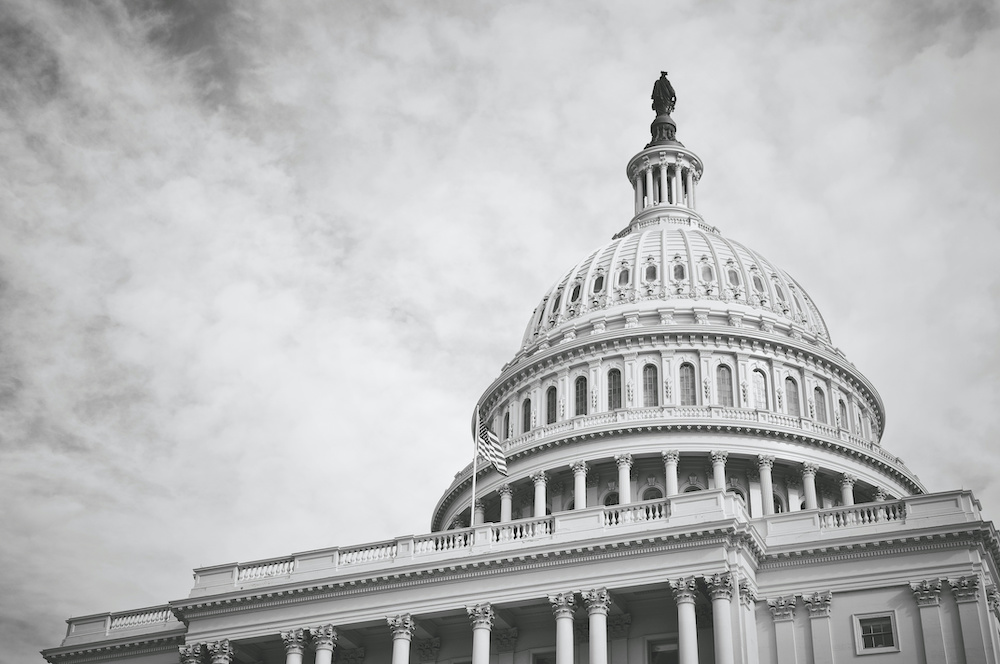
- Details
- By Native News Online Staff
A new bill would allow Tribal governments to benefit from the same opportunities for land acquisition as state and local governments currently do.
U.S. Senators Alex Padilla (D-Calif.) and James Lankford (R-Okla.) yesterday introduced bipartisan legislation to strengthen Tribal parity for the transfer of surplus federal property. The GSA Disposal Process Tribal Parity Act of 2024 would allow Tribal governments to participate in an existing process that allows the General Services Administration (GSA) to transfer surplus federal property to state and local governments below market value if those properties will be used for specified public purposes.
Senators Kevin Cramer (R-N.D.) and Mark Kelly (D-Ariz.) are cosponsoring the bill.
“As our nation works to strengthen Tribal sovereignty and self-determination, we must ensure parity with Tribal governments in our laws,” Senator Padilla said in a statement. “It’s long past time we fix this stark omission and allow Tribal governments the same opportunities as state and local governments to access surplus federal property, which will help provide additional housing, schools, and recreational opportunities for their citizens. I look forward to working with my colleagues to enact this commonsense bill as quickly as possible.”
When the GSA offloads federal real estate, they follow a process mandated by federal law and Executive Orders. Current law allows GSA to first offer excess property to other federal agencies. Still, if there is no further need for the property within the federal government, the property is determined as “surplus”. It may be made available for other uses through public benefit conveyances.
Under public benefit conveyances, the GSA can transfer these surplus properties to state and local governments at discounts up to 100 percent of fair market value for listed public uses like public health or educational uses, public parks and recreational areas, community centers, municipal buildings, homeless assistance, law enforcement and emergency response, and more. However, Tribal governments are not written into the statute and cannot access these properties that could be used for public purposes.
Last Congress, Senator Padilla, the late Senator Dianne Feinstein and Representative Doug LaMalfa (R-Calif.-01), enacted a similar law to advance Tribal parity in an existing public lands disposal law. Before enactment of their legislation, the Bureau of Land Management was able to sell and lease certain public lands to state and local governments, but not Tribes, below market value if those lands were to be used for recreational or public purposes. Following passage of the legislation, Tribal governments are now able to participate and are treated equally as state and local governments. The first land transfer under that program occurred recently when 88 acres of land were transferred back to Susanville Indian Rancheria.
More Stories Like This
Native News Weekly (August 25, 2024): D.C. BriefsUS Presidents in Their Own Words Concerning American Indians
Indigenous Actor Elaine Miles Reports Detention by Alleged ICE Agents
Happy Thanksgiving from Native News Online
Coming Up on Native Bidaské: Behind the Animation: Joey Clift Talks “Pow” and Native Storytelling
Help us tell the stories that could save Native languages and food traditions
At a critical moment for Indian Country, Native News Online is embarking on our most ambitious reporting project yet: "Cultivating Culture," a three-year investigation into two forces shaping Native community survival—food sovereignty and language revitalization.
The devastating impact of COVID-19 accelerated the loss of Native elders and with them, irreplaceable cultural knowledge. Yet across tribal communities, innovative leaders are fighting back, reclaiming traditional food systems and breathing new life into Native languages. These aren't just cultural preservation efforts—they're powerful pathways to community health, healing, and resilience.
Our dedicated reporting team will spend three years documenting these stories through on-the-ground reporting in 18 tribal communities, producing over 200 in-depth stories, 18 podcast episodes, and multimedia content that amplifies Indigenous voices. We'll show policymakers, funders, and allies how cultural restoration directly impacts physical and mental wellness while celebrating successful models of sovereignty and self-determination.
This isn't corporate media parachuting into Indian Country for a quick story. This is sustained, relationship-based journalism by Native reporters who understand these communities. It's "Warrior Journalism"—fearless reporting that serves the 5.5 million readers who depend on us for news that mainstream media often ignores.
We need your help right now. While we've secured partial funding, we're still $450,000 short of our three-year budget. Our immediate goal is $25,000 this month to keep this critical work moving forward—funding reporter salaries, travel to remote communities, photography, and the deep reporting these stories deserve.
Every dollar directly supports Indigenous journalists telling Indigenous stories. Whether it's $5 or $50, your contribution ensures these vital narratives of resilience, innovation, and hope don't disappear into silence.
 The stakes couldn't be higher. Native languages are being lost at an alarming rate. Food insecurity plagues many tribal communities. But solutions are emerging, and these stories need to be told.
The stakes couldn't be higher. Native languages are being lost at an alarming rate. Food insecurity plagues many tribal communities. But solutions are emerging, and these stories need to be told.
Support independent Native journalism. Fund the stories that matter.
Levi Rickert (Potawatomi), Editor & Publisher

